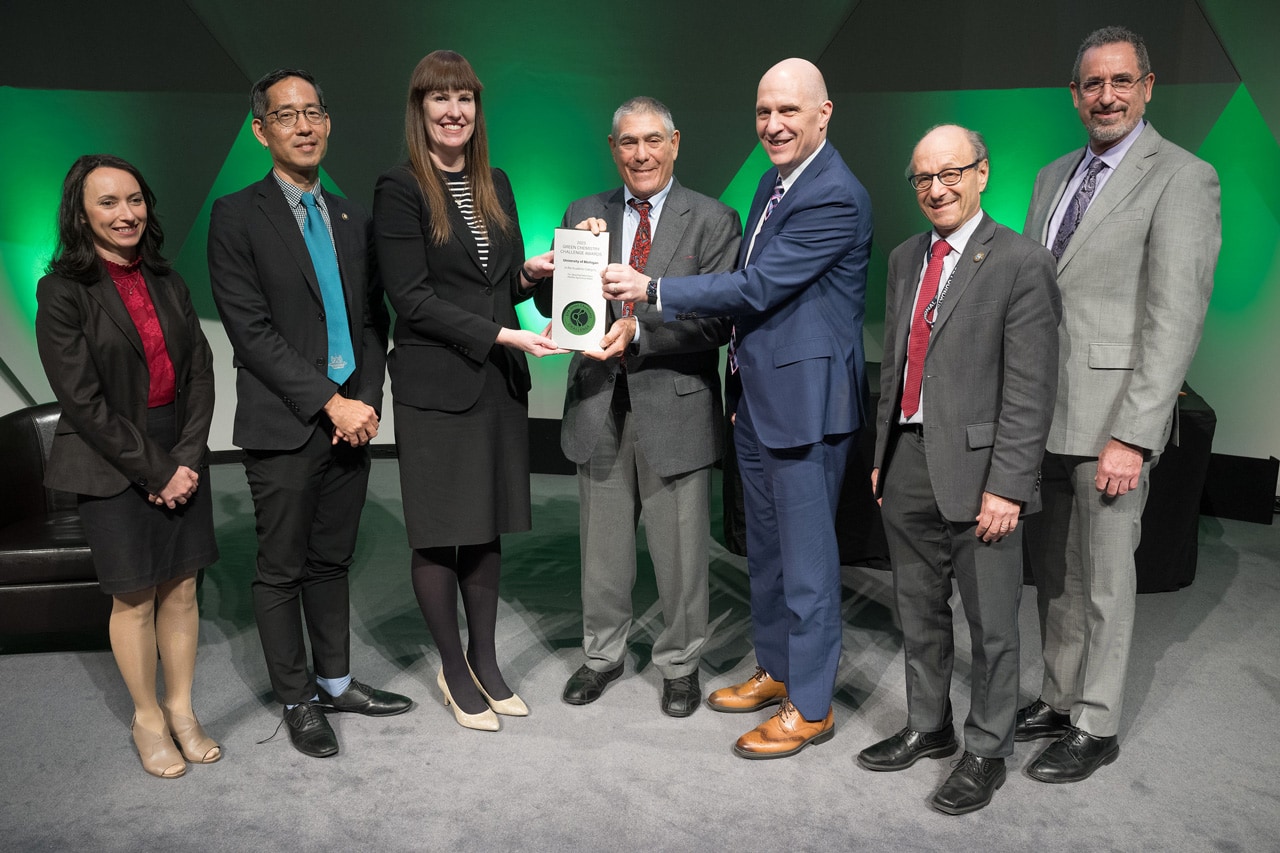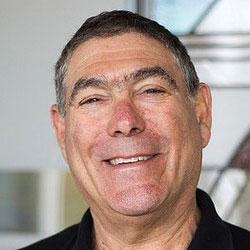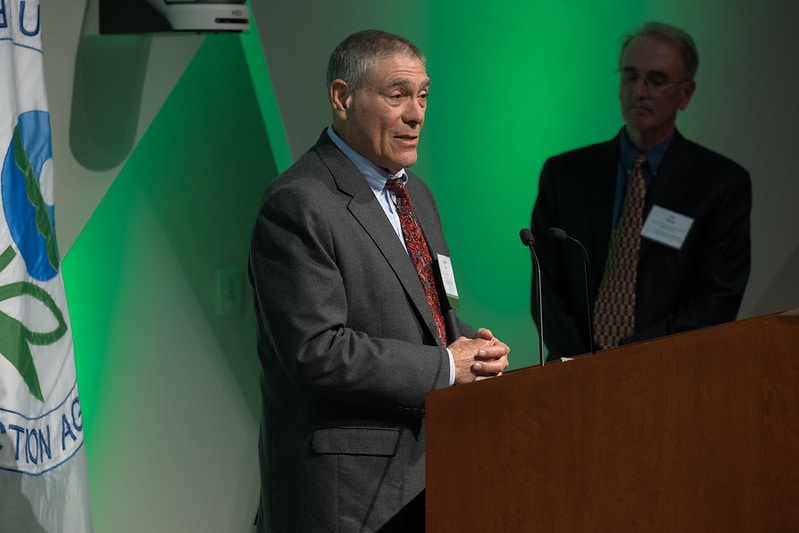
Green chemistry award: Professor recognized for sustainable silicon metal production method
Richard Laine is the academic category winner in a national EPA contest.

Richard Laine is the academic category winner in a national EPA contest.
Experts

Professor of Materials Science and Engineering
Professor of Macromolecular Science and Engineering
For his work refining agricultural waste into materials for lithium-ion batteries and other sustainable energy technologies, Michigan Engineering Professor Richard Laine has been honored by the US Environmental Protection Agency (EPA.)
Laine, a professor of materials science and engineering and macromolecular science and engineering, is one of six winners of the EPA’s 2023 Green Chemistry Challenge Awards, the agency recently announced. He won in the academic category.
“Green chemistry can play a vital role in protecting human health and the environment by increasing efficiency, avoiding hazardous chemicals and preventing waste while improving the competitiveness of American companies,” said Jennie Romer, EPA Office of Chemical Safety and Pollution Prevention deputy assistant administrator in an EPA press release.
Across the US and the world, millions of tons of agricultural waste such as rice hulls are burned every year to produce electricity. The resulting rice hull ash, which is often landfilled, can contain large amounts of silica—and relatively few impurities. The team at the University of Michigan has developed multiple ways of refining the rice hull ash to produce a compound called spirosiloxane that can then be used to produce high purity silica as well as lithium-ion conducting polymers, which have potential for use in solid state batteries. Laine is also working to turn the leftover silica-depleted ash into electrodes for lithium-ion supercapacitors.

The process operates at lower temperatures, requires less energy and emits less carbon than the current methods of producing silicon metal, which involve heating quartz with a carbon source such as coal.
An independent panel of technical experts convened by the American Chemical Society Green Chemistry Institute formally judged the 2023 submissions and made recommendations to EPA.
“A universal goal in doing research is to develop something that could greatly benefit science and society,” Laine said. “One way is to transform a waste product into something valuable to society. The award justifies my research groups’ long-term efforts and many of my students made this all possible, it is a shared award.”
Nicole Casal Moore
Communications & Public Engagement Director